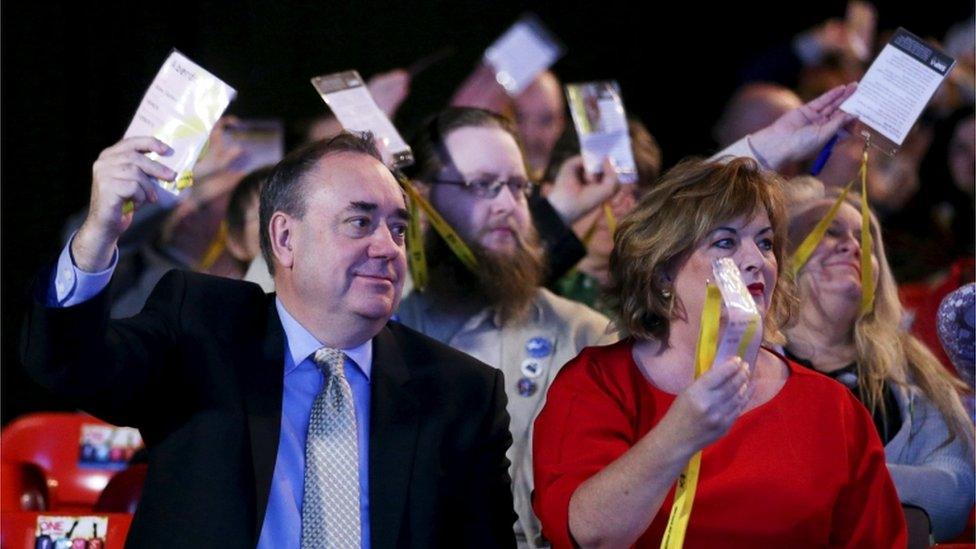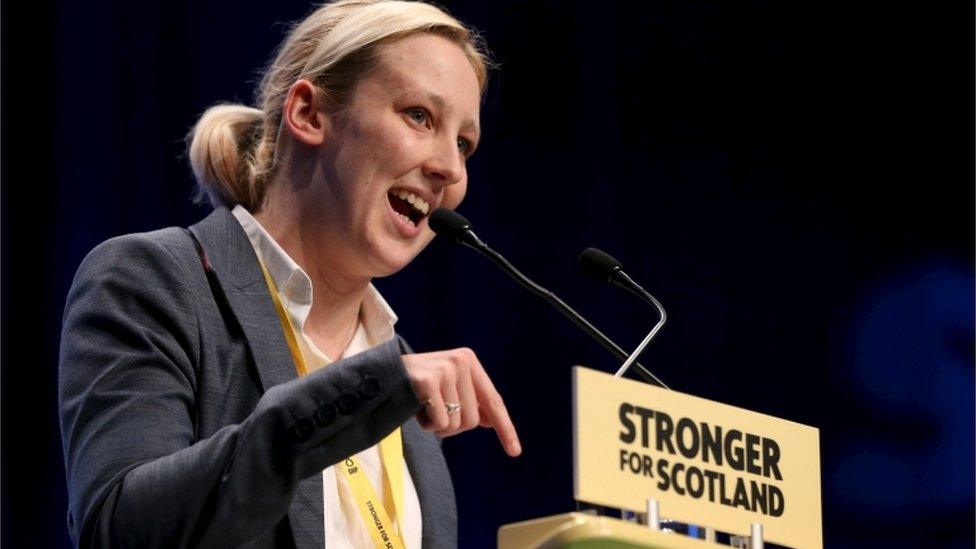SNP conference: Disquiet but still decidedly united
- Published

Two card votes were held at the conference on Friday
For a moment or two, it was quite like old times. Disquiet with the leadership. Demands for the "remit back" of contentious motions. There were even two card votes.
But it would not do to overstate such matters. This is a decidedly united conference. Delegates gave standing ovations - before they spoke - to established stars like John Swinney and Alex Salmond plus the newcomer Mhairi Black. The reception after the speeches was more rapturous still.
Still, murmurs of discontent there were - in each case because of a perception that the Scottish government was not being sufficiently radical.
Firstly, on fracking. Ministers have announced a moratorium, deferring a decision until 2017. Separately, they have announced a delay, presently without a timetable, on Underground Coal Gasification.
Problem deferred
Several delegates were unhappy and said so volubly. They wanted an outright ban, citing environmental and safety concerns. There was discontent with the Scottish government position.
In the event, though, any outright rebellion was headed off on this one. Delegates ended up backing the moratorium. Demands to shelve that to permit eventual support for a total ban were defeated - although it was suggested by one critic of the Scottish government stance that harder line motions had not made it on to the agenda.
Like the moratorium itself, however, this may be simply a problem deferred for SNP ministers. The mood expressed at conference was decidedly hostile to fracking - although perhaps supporters or those who are unsure sat on their hands. For example, it was decided to leave the debate to the delegates, with no minister intervening.

Mhairi Black was among the speakers to receive a rapturous reception from delegates
That was card vote one. The very next debate produced another. This time, the leadership position was defeated. Delegates expressed unhappiness with the Land Reform Bill which is presently under scrutiny at Holyrood. Several favoured more radical policies on transparency and buy-outs.
The minister in charge of the Bill, Aileen McLeod, stressed she was listening. Amendments were decidedly possible. She urged conference to back the bill meantime. But instead delegates shelved the supportive motion and urged change.
So two big policy issues - and dual evidence of discontent. To stress again, though, the overall mood of the conference was upbeat and determined.
Trudging of streets
Mr Swinney recalled an earlier conference, also in Aberdeen, in 1981 when, he said, things had been rather different. The party now, he said, was "decisively more united" than then.
But, having congratulated delegates, he challenged them. The coming Holyrood election would require endless hard work, he said: much trudging of streets and knocking on doors.
He echoed Nicola Sturgeon in emphasising that the choice before the people of Scotland in May would not be independence or the Union. That, he said, would be "decided on another day, at another time."
The question in May, Mr Swinney declared, would be: "Who stands for Scotland?"